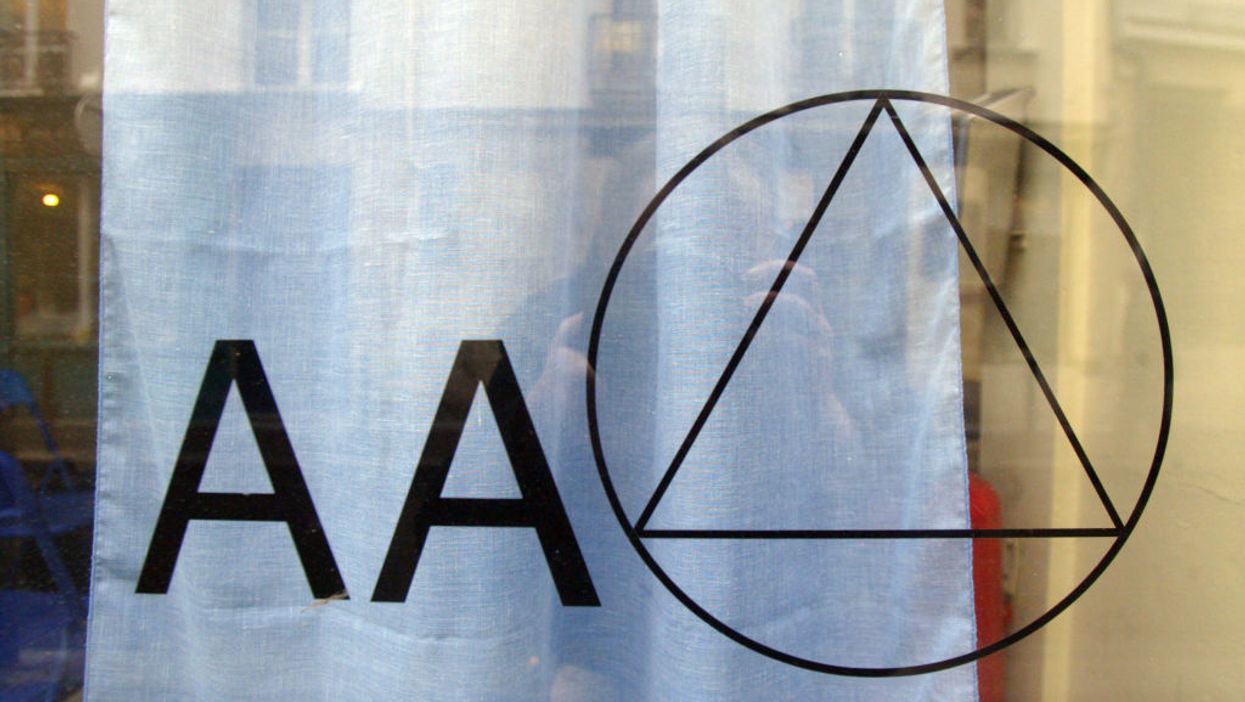
FRANCOIS GUILLOT/AFP via Getty Images

First step: Admit you have a problem
The University of Minnesota's School of Social Work is offering a special webinar series in which white participants are instructed to undergo a 12-step plan — based on Alcoholics Anonymous — in order to "recover and reclaim our full humanity."
The 12-step plan is outlined in Part 1 of the series, titled, "Recovery from White Conditioning: Building Anti-Racist Practice and Community," and is taught by therapist Cristina Combs, a university alumnus.
According to the project's website, Combs, a white woman, developed the plan "after years of struggling to navigate the role and presence of whiteness in her personal, academic, and professional journeys."
"In this model, we are, in fact, centering whiteness, but we are centering it differently: to expose it, study its patterns, and to transform its violent legacy," Combs said at the outset of the lecture, according to the College Fix.
She noted that she is "on traditional Dakota land," in reference to the Native American tribe that settled in Minnesota, and also acknowledged "George Floyd, Breonna Taylor, and all of the other lives stolen from families and communities and our world due to police brutality and state-sanctioned violence."
At one point during the lecture, Combs asked, "What comes to mind when you hear the term, 'white supremacy?'" She then proceeded to show images of the Ku Klux Klan and Charlottesville, Virginia, white nationalists before replacing their images with a picture of herself.
She commented that she used to recoil at the term but eventually realized that this was only her ego. Now she says, "Stepping into that tension and accepting my connection to white supremacy has been a freedom of sorts to show up in better alignment with my values and do the work for the rest of my life."
At last, she unveiled the 12-step recovery plan. It goes as follows, as shown in the powerpoint for the lecture:
Step 1: "We admitted that we had been socially conditioned by the ideology of white supremacy—that our minds were subject to racial biases, often unconsciously so."
Step 2: "We came to believe that we could embrace our ignorance as an invitation to learn."
Step 3: "We develop support systems to keep us engaged in this work."
Step 4: "We journeyed boldly inward, exploring and acknowledging ways in which white supremacist teachings have been integrated into our minds and spirits."
Step 5: "We confessed our mistakes and failings to ourselves and others."
Step 6: "We were entirely ready to deconstruct previous ways of knowing, as they have been developed through the lens of white supremacy."
Step 7: "We humbly explored new ways of understanding…proactively seeking out new learning and reconstructing a more inclusive sense of reality."
Step 8: "We committed ourselves to ongoing study of our racial biases, conscious or unconscious, and our maladaptive patterns of white supremacist thinking."
Step 9: "We develop strategies to counteract our racial biases."
Step 10: "We embraced the responsibility of focusing on our impact, more than our intentions, in interactions with people of color."
Step 11: "We engage in daily practices of self-reflection."
Step 12: "We committed ourselves to sharing this message with our white brothers, sisters, and siblings…in order to build a supportive recovery community and to encourage personal accountability within our culture.
The project's website notes that the lecture is available for continuing education credit so long as participants pay $25 and complete a post test.